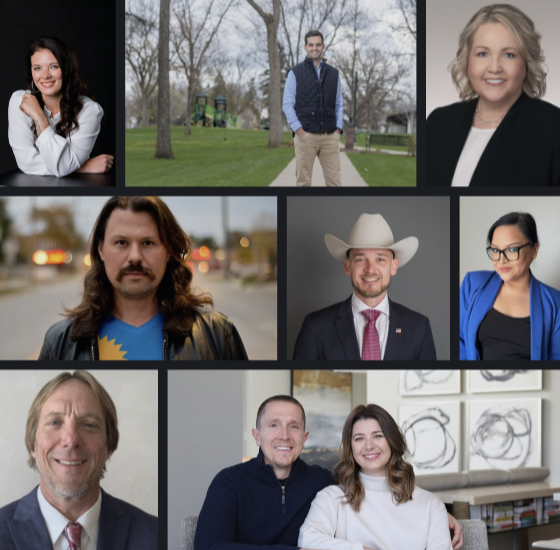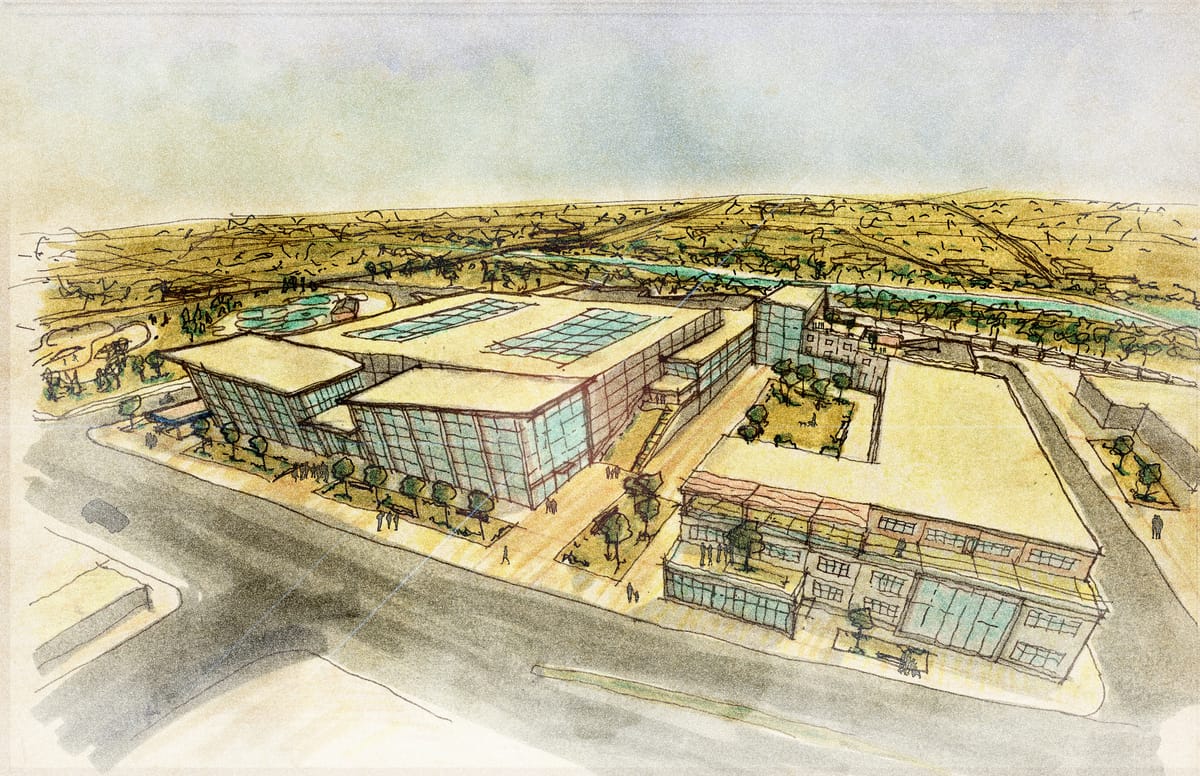Editor's note: This is the second in a multi-part series on the 2024 city and school board election. Find part one here. Stay tuned for more on the candidates views on various issues – oh, and make sure you're registered to vote by March 25 or, like, what is this all for?
Simplified: Sioux Falls Simplified sat down with each of the eight candidates hoping to have a seat on the City Council. Candidates were all asked (approximately) the same set of questions. Here's what they had to say about growth.
Why it matters
- Sioux Falls' population has exceeded 213,000 (which, by the way, is almost the same size as Des Moines, Iowa). And the last couple of years have seen more than $1 billion in building permit valuation.
Another quick note: Candidates are listed in the order in which they're shared on the city election website. Answers are edited for length and clarity.
Sioux Falls has seen tremendous growth both from a population and economic development standpoint in recent years, if elected what are you watching when it comes to managing that growth?
Jennifer Sigette, Northwest District*: "I think one of the biggest things by far is just infrastructure ... we've got to set up roads in a way that traffic makes sense. That's just all there is to it.
- I love the growth, i definitely am going to be supporting our growth wahtever it look slike but we just have to set up things right so that we're not in 20, 30 or 40 years kicking ourselves.
- I very much acknowledge that we need to be thoughtful. We need to be strategic, and we really do need to be thinking, when I'm long gone, does the zoning we approved make sense?"
Miranda Basye, Northeast District: "All growth is not good growth, so I think that's part of the conversation. We can be really, really excited about the increase of businesses, increase of population, increase in tax revenue ... but I think that being really intentional about what that growth is and how we handle it is really important."
- Basye also mentioned being strategic about land use and utility expansion.
- "I think that we're just going to have to be really smart and intentional ... to really comb through all the details of how is this going to affect the community not just right now but for decades and decades."
Neil Jeske, Northeast District: "Some opportunities would be just making sure that local government provides a level playing field for anyone who wants to participate in local business and the local economy – that we have less regulation and more freedom.
- The more taxes and fees and regulation, what the city puts on the citizens, means less freedom, so I definitely would like to review all the business transactions (between the city and businesses) like permit fees, etc. Maybe we can cut costs there.
- A low-cost, efficient government is what I would want."
David Zokaites, Northeast District: "Affordable housing. Economic growth is great, it's wonderful. It's always nice to have more money, more people, that's good too. But you've gotta have a spot for these people to live, and that's where affordable housing comes in.
- We've got to make some fundamental changes in development styles so we can make less expensive housing for all these people who need to move into town, and really we need to make fundamental changes to the design of our city.
- Big houses, big lots, parking minimums – it's not sustainable. ... If we can rearrange cities to go back to ancient design and perpendicular roads, integrating different styles of housing next to each other, smaller setbacks, you'd do a lot to alleviate construction costs."
Ryan Spellerberg, Southwest District*: "It's kind of weird because I do home loans for a living, so I get to see trends coming in when there are more people moving to town.
- During Covid, the number one reason people said (they were moving here) was our governor and freedom. I really pay attention because I'm also a real estate investor to things like occupancy and the number of multi-family permits.
- We have a lot of supply coming on the market in the next few years, so rents might be going down, but it doesn't make housing affordable. There's just not a great, easy answer to that."
Jordan Deffenbaugh, At-Large: Deffenbaugh noted the importance of growth, but said it's also important to watch other metrics like the cost of rent and food.
- "Do we lose sight of what is really important, which is our neighborhoods? ... This is where real leadership shows up to create conditions so people can take care of themselves."
Richard Thomason, At-Large: "Ensuring that our existing neighborhoods are still taken care of. The example that I like to use is if we're expanding – which we are everywhere – that the roads from here to there still need to be good and not just good out there (in new developments).
- We need to make sure that buildings in existing neighborhoods are taken care of and well cared for as well. It's really just making sure we don't forget where we came from as we're expanding."
Allison Renville, At-Large: "We need to look at Sioux Falls as a renovation vs. gentrification – repurpose buildings that already exist vs. tearing things down."
- Renville also noted that Sioux Falls is grasping onto an "urban mentality" too fast, and she'd like to see more focus on mental health within the city.
*Sigette and Spellerberg will not be listed on the ballot because their races are uncontested. Since they'll be representing essentially half the city, Sioux Falls Simplified still included them here so voters know their public officials.
Want to learn more about the candidates?
See who they are and why they're running here:

And then get their thoughts on roads:

And then see what they have to say about the Riverline District:

And then keep checking back for more topics in the coming weeks leading up to the April 9 election.


